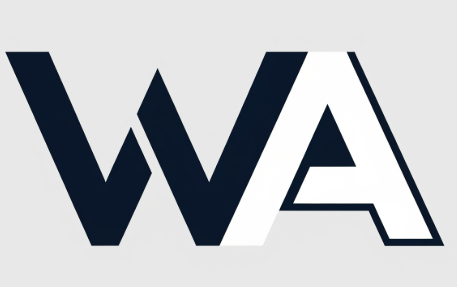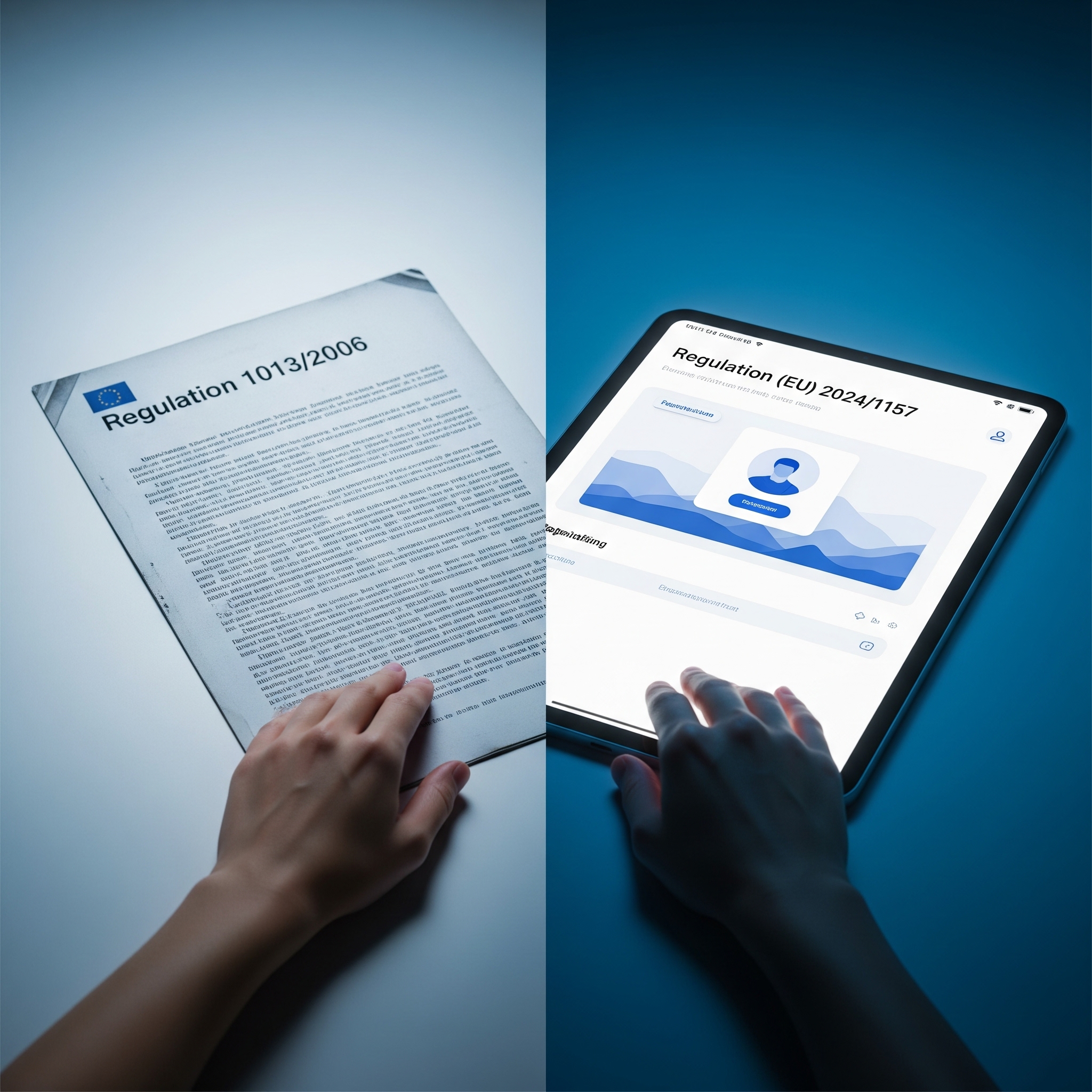For nearly two decades, Regulation (EC) No 1013/2006 has been the cornerstone of EU waste shipments, a complex but familiar framework for professionals across the sector. Now, its era is officially ending. This marks a pivotal moment, ushering in a new set of rules that all businesses and consultants must understand and implement. Its replacement, Regulation (EU) 2024/1157, is not just a simple update but a comprehensive overhaul with a new philosophy. While the law is active, its main provisions will become fully applicable from May 21, 2026.
This article will guide you through the most critical changes you need to know, focusing on the key differences between the old and new systems. We will break down the practical implications of this EU waste law transition to help you prepare effectively for the 2026 deadline.
A Fundamental Shift: From Management to Proactive Enforcement
While the old Regulation 1013/2006 was primarily focused on managing and controlling known shipment procedures, its successor represents a significant strategic shift. The new framework is designed to be more proactive in preventing illegal shipments at the source and places a much stronger emphasis on verifying sustainable practices outside the Union. Furthermore, it mandates digitalization as a core tool for achieving unprecedented levels of transparency and enforcement. This is less about simply managing waste flows and more about ensuring their integrity from start to finish.
Key Practical Changes You Must Prepare For
Understanding the high-level philosophy is important, but the devil is in the details. Here are the key practical waste shipment changes 2026 that will impact day-to-day operations and require your immediate attention.
Exports to Non-EU Countries: A New Standard of Diligence
Under the old system, the requirements for exports were established but left room for interpretation. The new regulation tightens these rules considerably. One of the most significant changes is the introduction of mandatory, independent audits for all facilities in non-OECD countries wishing to receive waste from the EU. These facilities must prove they adhere to Environmentally Sound Management (ESM) standards. Furthermore, Regulation (EU) 2024/1157 introduces an explicit ban on the export of all plastic waste to non-OECD countries, a landmark move with major implications for waste plastic traders.
Procedures & Documentation: The End of the Paper Trail
The era of paper-based notifications and movement documents is over. Regulation (EU) 2024/1157 mandates the move to a centralized EU-wide electronic system for the submission and exchange of all information and documents. This digital shift aims to increase efficiency, reduce administrative burdens in the long run, and provide authorities with real-time data to track shipments and improve transparency. For businesses, this means adapting internal workflows and IT systems to a fully digital environment.
Enforcement and Liability: A More Coordinated Approach
Where enforcement under Regulation 1013/2006 was often fragmented between Member States, the new rules establish an EU “Waste Shipment Enforcement Group.” This body will coordinate and harmonize inspection efforts across the Union. For professionals, this means heightened scrutiny and a greater likelihood of cross-border cooperation between authorities. The risk profile for non-compliance will increase, making diligent adherence to every aspect of the regulation more critical than ever.
Changes to Definitions and Scope
While many core definitions remain, the new regulation refines certain aspects that could impact how waste streams are managed. Professionals should carefully review the text for any subtle but important changes in the definitions of ‘recovery’, ‘disposal’, or other key terms that could affect waste classification and the choice of the correct shipment procedure.
Navigating the Complex Transition Period
It is a common misconception that Regulation 1013/2006 will simply be “switched off” on May 21, 2026. The reality is a more complex phase-out period, and understanding it is crucial for managing existing and upcoming shipments. Here are the key points:
- General Application: Most provisions of the new Regulation (EU) 2024/1157 become mandatory from May 21, 2026.
- Existing Consents: Shipments that were already notified and received consent from all relevant authorities under the old regulation can proceed, but the recovery or disposal must be completed by May 21, 2027.
- Pre-Consented Facilities: Shipments to facilities that held a “pre-consent” status under the old regulation have an even longer transition period, with the final shipment needing to be completed by May 21, 2029.
- Immediate Changes: Be aware that some specific articles of the old regulation (such as those concerning border-area agreements) already ceased to apply as of May 20, 2024.
Conclusion: Your Action Plan for the 2026 Transition
The end of the Regulation 1013/2006 era is not just a future date on a calendar; it is a process that demands immediate attention and proactive preparation. The EU waste law transition is underway, and waiting until the last minute will expose your operations to significant risk. To ensure a smooth transition, professionals should use the coming months to develop a clear action plan.
Here is a simple checklist to get you started:
- Review: Audit your portfolio of export partners and destination facilities, especially those in non-OECD countries, against the new requirements.
- Prepare: Begin planning the digitalization of your workflow and assess what changes are needed to your internal systems to integrate with the future EU-wide platform.
- Train: Ensure your compliance, logistics, and administrative teams are fully trained on the new rules, documentation, and procedures.
- Audit: Conduct a gap analysis of your current compliance processes against the new regulation’s requirements to identify and address any weaknesses.
The transition from Regulation 1013/2006 is a complex process with many facets. For more deep dives into specific aspects of the new waste shipment rules and other related topics, we invite you to explore our Insights Hub.

